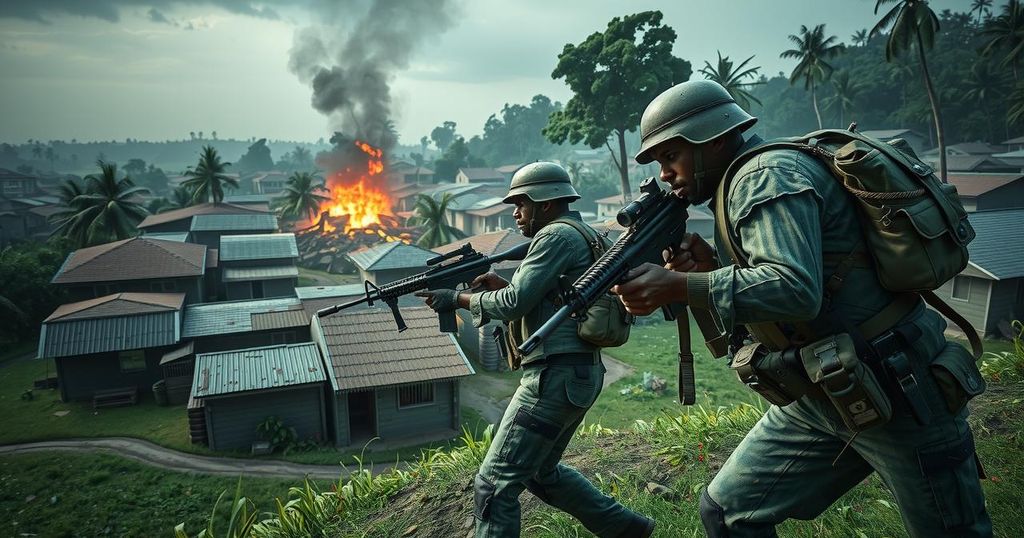Rwanda-Backed Rebels Capture Masisi, Exacerbating DR Congo Crisis

Rwanda-supported rebels have captured Masisi in eastern DR Congo, continuing their expansion in North Kivu province. This recent event follows their takeover of Katale and reflects the humanitarian crises caused by ongoing conflicts, displacing thousands since 2021. The Congolese government remains silent on the loss, while local representatives express urgency in strengthening military responses. Legal actions against tech companies over ‘blood minerals’ further complicate the situation.
Rebels supported by Rwanda have successfully seized the town of Masisi in eastern Democratic Republic of Congo (DR Congo), marking their second victory in just two days within the mineral-rich North Kivu province. Since 2021, the M23 group has expanded its control over significant areas of eastern DR Congo, displacing hundreds of thousands of residents. Amidst ongoing tensions, Angola has attempted to mediate discussions between DR Congo’s President Félix Tshisekedi and Rwandan President Paul Kagame, though these efforts faltered last month. Alexis Bahunga, a member of the North Kivu provincial assembly, expressed concern over the humanitarian implications of Masisi’s capture, highlighting the need for enhanced military capabilities in the region. Residents reported that the M23 assured them of their intentions to ‘liberate the country’. The Congolese government has yet to release an official statement regarding the situation. Masisi, home to approximately 40,000 residents, is situated about 80 kilometers north of Goma, which was briefly controlled by the M23 in 2012. The group also captured the neighboring town of Katale just days prior. Although there were initial fears of renewed assaults on Goma, fighting subsided until resume in December. Rwanda has been implicated in supporting the M23 with around 4,000 soldiers, accusing the Congolese government of inadequacy in addressing longstanding conflicts. Critics argue that Rwanda exploits the M23 for economic gain through the region’s mineral resources. Meanwhile, DR Congo is pursuing legal action against Apple regarding the use of conflict minerals, with the tech company reportedly ceasing its supply purchases from the nation.
The ongoing conflict in the eastern Democratic Republic of Congo is rooted in a complex history involving ethnic tensions, historical grievances, and external influences. The M23 rebel group initially emerged in 2012, claiming to protect the Tutsi population from persecution. However, the group’s activities have evolved, and it is now seen as a tool for Rwanda to exert influence and exploit valuable mineral resources in eastern DR Congo, including gold, cobalt, and tantalum. The humanitarian crisis contributing to the displacement of populations has been exacerbated by intermittent fighting, ceasefires, and mediation attempts by regional powers such as Angola. The issues are further complicated by allegations of collaboration between Congolese authorities and individuals linked to the Rwandan genocide. Legal actions surrounding so-called ‘blood minerals’ highlight the continued international scrutiny of ethical sourcing in technology supply chains.
The recent capture of Masisi by Rwanda-backed rebels highlights the persistent instability in the eastern Democratic Republic of Congo and the humanitarian crises resulting from ongoing conflicts. The M23’s expansion raises alarms regarding the political and economic consequences, not only for the region but also for global stakeholders involved in mineral extraction. Efforts at mediation and military reinforcement are necessary to address both the immediate security concerns and the underlying causes of unrest. Legal actions against companies that utilize conflict minerals reflect the international community’s response to the humanitarian implications of these conflicts.
Original Source: www.bbc.co.uk








